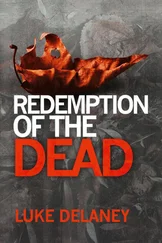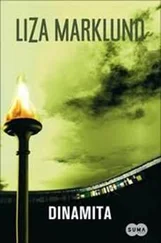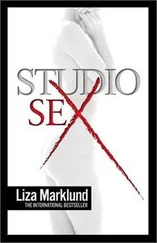She clicked back to the front page of the site and discovered that there were more photographs from Uppsala on the server, several from various demonstrations, but mostly from parties of one sort or another. She looked through all of them, but the dark young man named Göran Nilsson didn’t appear on any of the others.
Could it be him? Could he really have been an identifiable activist in the sixties, in which case he might well appear in various media from those days?
Archives like that were never available digitally; it was all envelopes of pictures and cuttings.
Her newspaper had the largest archive in the country. She grabbed the phone and asked the archivists to check if they had anything on a Göran Nilsson in Maoist groups at the end of the sixties. The woman who took her call showed little enthusiasm.
‘When do you need it?’
‘Yesterday,’ Annika said. ‘It’s urgent.’
‘When isn’t it?’
‘I’m sitting here waiting and can’t do anything until I hear from you.’
An almost inaudible sigh on the line. ‘I’ll do a quick check and see if I can find him in his own right. Reading through everything that was published on Maoism would take several weeks.’
Annika stood and looked out over the newsroom until she got an answer.
‘Sorry. No Göran Nilsson described as a Maoist. We’ve got a couple of hundred others though.’
‘Thanks for checking so quickly,’ Annika said.
What other archives were there from that period, in the places where Maoists were active? The university cities, she thought. The Competitor existed then, but there was no point in calling them. Upsala Nya Tidning ? She had no contact there. Was there a newspaper in Lund?
She scratched her head in irritation.
What about Luleå?
She had picked up the phone and dialled the Norrland News reception before even realizing she was doing it.
‘Hans Blomberg was off sick yesterday, I don’t know if he’ll be in today,’ the receptionist said, ready to disconnect her.
Annika suddenly felt an immediate and inexplicable fear. Good God, surely nothing could have happened to him?
‘Why? Is it serious?’
The receptionist sighed, as if she were dealing with someone who was a bit slow. ‘Burned out, like everyone else. Personally I think they’re just lazy.’
Annika started. ‘You’re not serious?’ she said
‘Have you thought that all these people started getting burned out when we joined the EU? All the shit coming over our borders comes from the EU, people, toxins, burn-out. And to think I voted yes. Fooled, that’s what we were.’
‘Is Hans Blomberg often ill?’
‘He only works part time now, got a disability pension a while back. Often he’s not even here on the days he’s meant to be.’
Annika bit her lip. She had to get into the Norrland News archive as soon as possible.
‘Can you ask him to call me when he comes in?’ She left her name and number.
‘ If he comes in,’ the receptionist said.
Göran Nilsson , she thought as she hung up and stared at the young man on her computer screen. Is that you, Göran?
The coffee machine had been repaired and the drinks were hotter than ever. She took her two cups into her room, letting the caffeine warm her brain.
Her eyes were stinging from lack of sleep. She had lain in bed with her eyes closed for hours while Thomas twisted and turned, moaning and scratching. The death of the local councillor had really shaken him.
She shook off her tiredness and carried on searching, typing in ‘Sattajärvi’, and reached a site about a building project at the end of the nineties.
There was a map. She leaned towards the screen to find the village and could just make out the tiny letters spelling out the names in the surrounding area: Roukuvaara, Ohtanajärvi, Kompeluslehto.
Not just another language , she thought. Another country, frozen solid, stretching up across the tundra above the Arctic Circle .
She leaned back.
What was it like growing up north of the Arctic Circle in the fifties, in a family where the father was a religious leader in a strict and weird belief system?
Annika knew the Swiss psychoanalyst Alice Miller had found that a striking number of West German terrorists were the children of Protestant ministers. Miller saw a connection: the terrorist’s violence was a rebellion against a strict religious upbringing. The same could easily be true of Sweden and Læstadianism, the religious movement of Northern Sweden.
Annika rubbed her eyes. At that moment she caught sight of Berit hurrying past. She forced her mind to clear and pulled herself up out of her chair.
‘Have you got a minute?’ she called from her door.
Berit took off her hat and gloves and folded her scarf. ‘I’m thinking of going to lunch early today. Do you want to come?’
Annika logged out of the system, fished her purse out of her bag, and discovered she was out of lunch vouchers.
‘Do we have to go down to the canteen?’ she said, looking round, suspicious of the newfound warmth.
Berit hung up her coat on a hanger, brushing the garment’s shoulders with her hand.
‘We could go out if you like, but I did go past the Seven Rats, and it looked pretty empty. They’ve got stir-fried chicken with cashew nuts downstairs.’
Annika bit the nail of her left index finger, considering the offer, then nodded.
‘What have you been out doing?’ she asked as they went down the stairs.
‘Rumours about a government reshuffle,’ Berit said, puffing her hair where it had been squashed by her hat. ‘The Prime Minister hasn’t got long before the EU elections, and if he’s going to rearrange his ministers he has to do it now.’
‘And? Who’s likely to go this time?’ Annika said, picking up an orange plastic tray in the canteen.
‘Well, Björnlund, for a start,’ Berit said. ‘She’s the worst Culture Minister we’ve ever had. She hasn’t come up with a single proposal in nine years. There are rumours that Christer Lundgren is on his way back from exile at Swedish Steel in Luleå.’ Berit opened a bottle of low-alcohol beer.
‘Really?’
‘Well, he never left the management committee, so a ministerial post was probably always in the pipeline.’
Annika nodded. Several years ago she had told Berit her thoughts about Christer Lundgren’s resignation, showing her the documents and travel receipts that proved that the Trade Minister hadn’t even been in Stockholm the night Josefin Liljeberg was killed. He had been meeting someone in Tallinn in Estonia, a meeting that was so controversial that he would rather accept a murder charge than reveal who he had met. There was only one explanation, Annika and Berit had agreed: Christer Lundgren was sacrificing himself for his party. Who he met in Tallinn and what they discussed could never be revealed. And she had told Karina Björnlund.
She had made the mistake of trying to get a comment from Christer Lundgren by telling the whole story to his press secretary. She never got a reply. Instead, Karina Björnlund had suddenly become a cabinet minister.
‘My stupid question paved the way for our Minister of Culture,’ Annika said.
‘Probably,’ Berit said.
‘Which means that it’s really my fault that Sweden’s got such useless cultural policies, doesn’t it?’
‘Quite right,’ Berit said. ‘What did you really want to see me about?’ Berit leaned back in her seat.
‘I’m after your past,’ Annika said. ‘What was the 9 April Declaration?’
Berit chewed a mouthful of food, a thoughtful look in her eyes, then shook her head. ‘Nope, no idea. Why do you ask?’
Читать дальше












